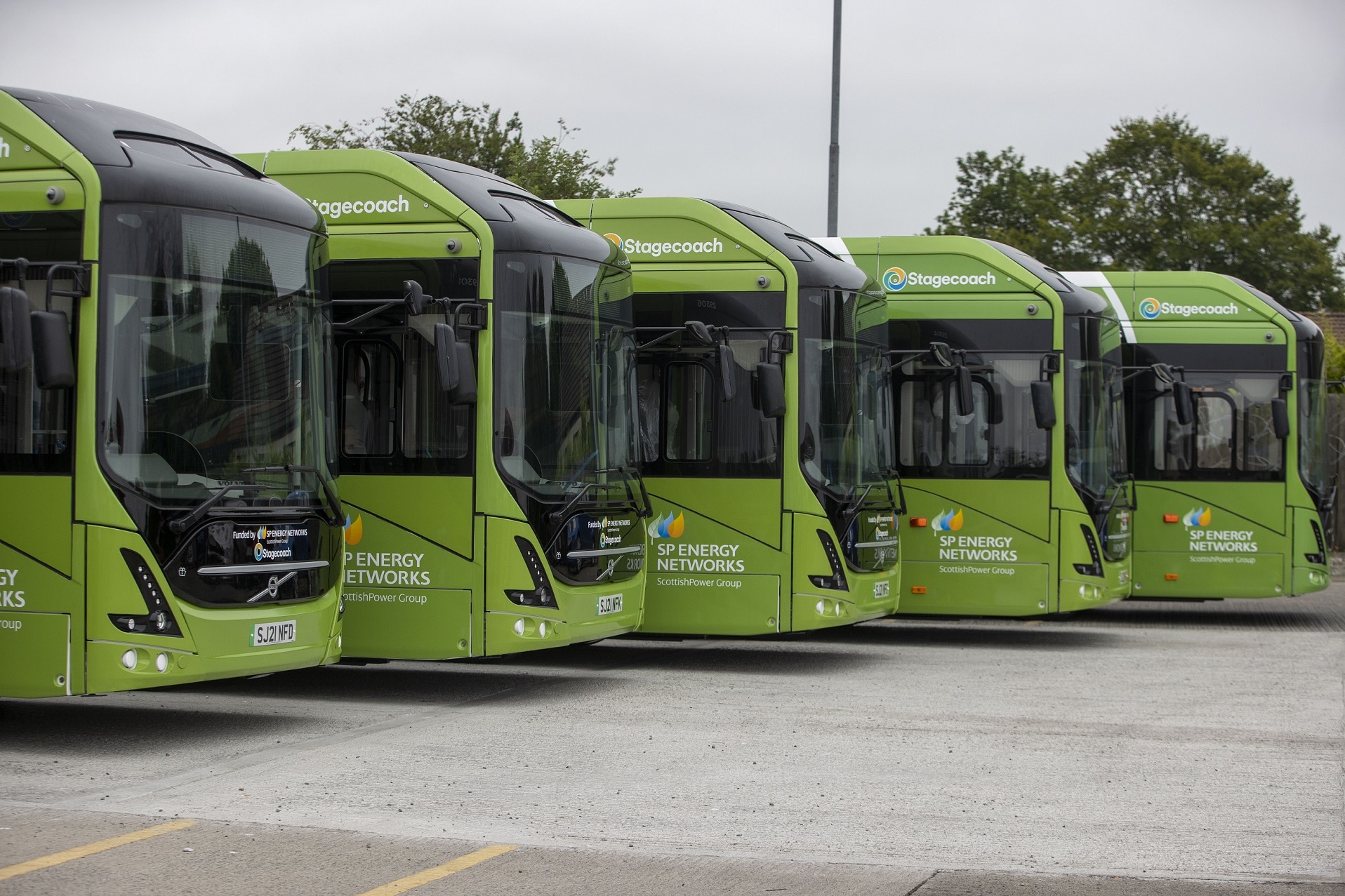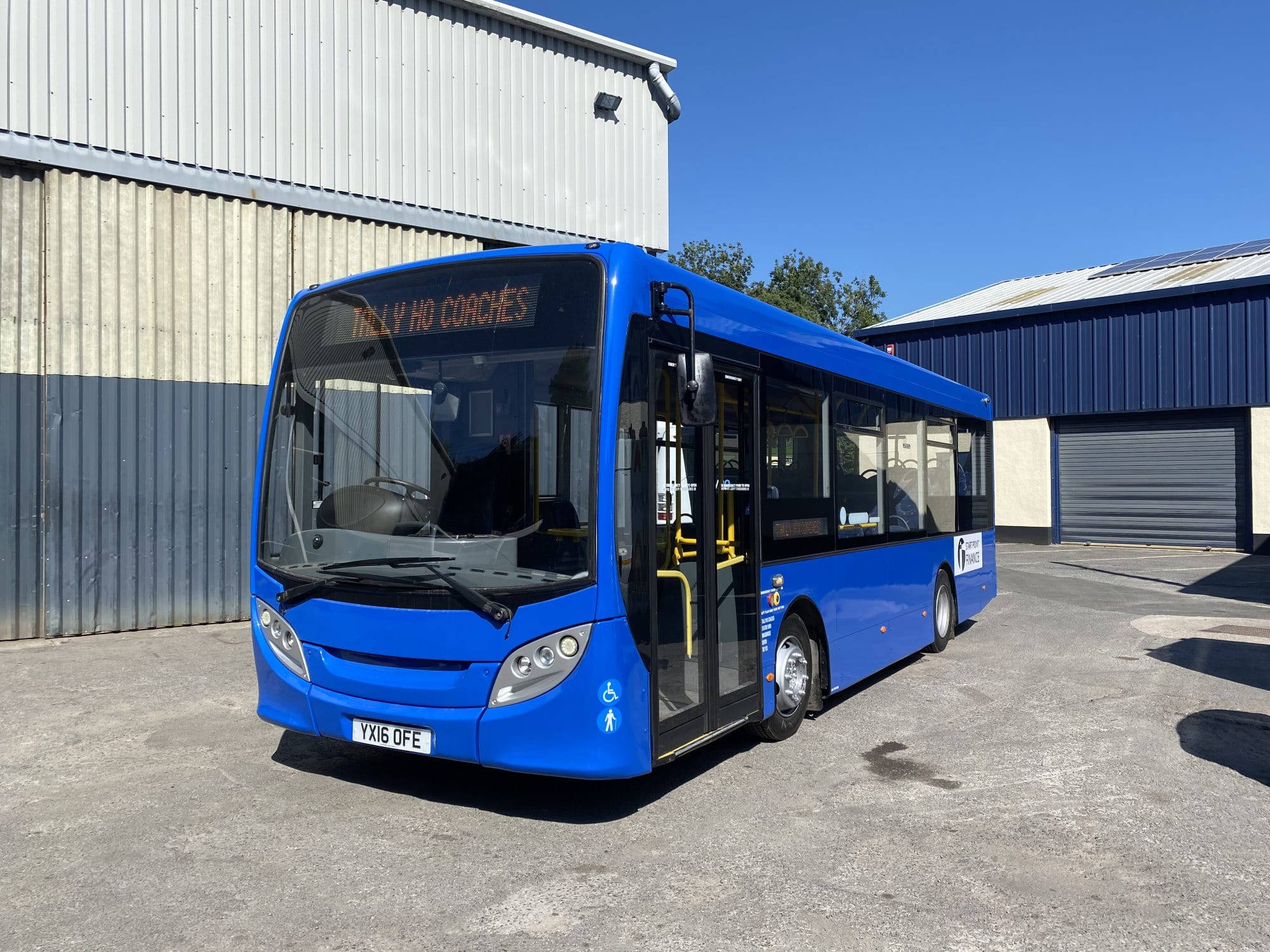Questions centring on funding and achievability have been raised by industry figures after the Scottish Government underlined its aspiration for zero-emission buses to have displaced “the majority” of diesel examples in Scotland by the end of 2023.
Published on 7 September, A Fairer, Greener Scotland: Programme for Government 2021-22 (link) reiterates the earlier SNP manifesto commitment. In her foreword, First Minister Nicola Sturgeon says that the policy forms part of “a green transport revolution.” To be achieved, it will require over 2,000 diesel buses to be replaced in less than 28 months – a rate of around 2.4 per day.
The Scottish Government has already committed £50m to a first round of the Scottish Zero Emission Bus Challenge Fund (ScotZEB) in 2021. A second phase of ScotZEB is expected in 2022 with what Transport Minister Graeme Dey described as “a larger pot of funding” when launching the scheme in July. The earlier Scottish Ultra-Low Emission Bus Scheme provided £50.7m across two rounds towards the purchase of 272 zero-emission buses.
Zero-emission buses majority in Scotland: Burden on operators?
While that money was welcomed by the industry, an individual familiar with the bus sector in Scotland suggests that Scottish Government financial limitations and state aid considerations could mean that an expectation will be placed on operators to fund most of the cost of achieving the 2023 policy goal for fleet decarbonisation.
That is an impossible burden, they caution. Bus operators have not returned a profit for almost 18 months because of the pandemic and the terms of the Scottish Government’s COVID-19 Support Grant Restart mechanism, which continues to bridge the gap between costs and reduced revenues.
Standardisation and rationalisation of zero-emission bus specifications has been aired as a possible route to reducing the cost of the transition. Minutes of a Bus Decarbonisation Taskforce (BDT) meeting held on 15 July detail that while there is “some degree” of scope for that, “complete standardisation would not be desirable.”
While bus standardisation to gain efficiencies “needs further exploration,” removing significant cost from battery-electric vehicles is intensely difficult. The BDT minutes detail that raw materials used in battery production “have increased significantly over the [past] 24 months.”
Scope for ZEB cost reduction ‘nothing like what is hoped for’
A further industry representative familiar with the manufacturing side of the sector has poured cold water on hopes that battery-electric bus purchase prices can be reduced by any notable amount. They confirm that battery costs are not reducing and add that if there was scope for a major drop in vehicle prices, manufacturer would already have delivered it.
“We welcome the ambition of the Scottish Government, and manufacturers are ready to respond. But in terms of cost reduction, we are not going to see anything like what is hoped for.”
The minutes further show that the cost of depot grid connections for battery-electric fleets range from £60,000 to £1.5m and is influenced by whether local grid reinforcement is required. The expense of hydrogen refuelling stations is defined by the cost of the electrolyser, “which can vary significantly.”
Also suggested by the first industry insider is that cost and lead times for the infrastructure required to support over 2,000 zero-emission buses will act as a major barrier to the Scottish Government’s plans being achieved.
Long-term planning ‘can deliver infrastructure cost savings’
However, the distribution network operators that are part of the Taskforce recognise that long-term planning for, and commitments to, bus decarbonisation would assist in cutting costs by reducing civil engineering works. They also believe that linking decarbonisation of buses with the same work in fleets of other vehicles in area-based plans has the potential to spread costs more widely.
In launching ScotZEB, the Scottish Government majored on it attracting new models of finance to accelerate the move away from diesel. Transport Scotland would not be drawn on how many zero-emission buses the £50m may facilitate. Guidance published later shows that money will be allocated on a per-vehicle basis, although bidders will be encouraged to seek sums less than the caps in play.


























